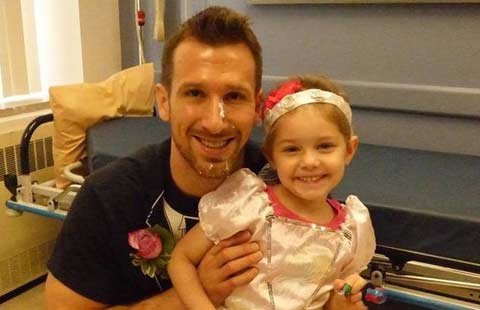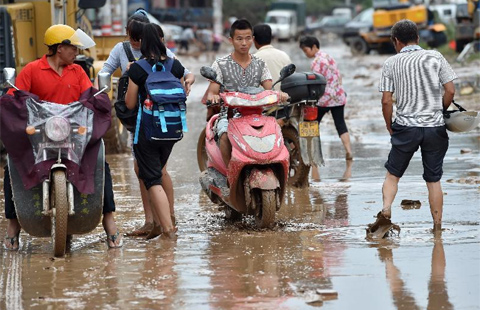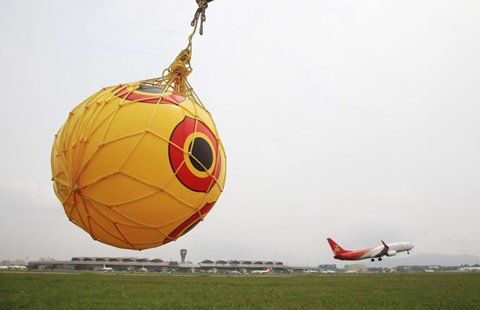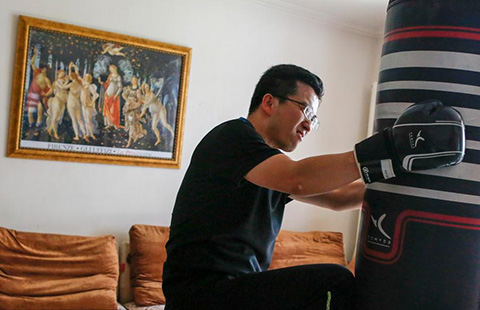Hepatitis B among children plummets
Updated: 2015-07-24 07:44
By Wang Xiaodong(China Daily)
|
||||||||
The infection rate of hepatitis B among children under 5 years old in China declined to 0.32 percent by the end of last year, a thirtyfold decrease since 1992, China's health authority said on Thursday.
The National Health and Family Planning Commission said the drop is due to effective vaccine measures that have been carried out in past decades.
"Receiving a vaccination is the most economic and effective way to prevent hepatitis B, and it has played a key role in the decline of the infection rate among children in China over the past years," said Lei Zhenglong, deputy chief of disease prevention and control at the commission.
By the end of 2013, about 95 percent of children were receiving free hepatitis B vaccinations, Lei said.
In Beijing, one of the areas with the lowest hepatitis B prevalence in China, no new diseases caused by the virus have been reported among people under 15 for the past three years, according to Gao Xiaojun, spokesman for the Beijing Commission of Health and Family Planning.
Wang Hao, a professor specializing in liver diseases at Peking University People's Hospital, said hepatitis B is particularly harmful to newborn babies.
"The chance of a newborn baby infected with the virus developing into a chronic patient can be 90 percent," he said. "And it is very difficult for a chronic hepatitis B virus carrier to be cured. The virus may lead to a number of other liver-related diseases, such as liver cancer."
The chances of being infected with the virus decline with age. More than 90 percent of adults infected can be cured and will not develop into chronic carriers, Wang said.
"It is very important for newborn babies to receive vaccination," Wang said.
The number of hepatitis B virus carriers in China is estimated at 90 million, including 28 million chronic patients, according to the National Health and Family Planning Commission.
China started to provide free hepatitis B vaccinations to newborn babies in 2002, and more intervention measures have been used on babies born to parents infected with the virus, the commission said.
China also issued regulations in recent years to fight against discrimination against hepatitis B carriers, including forbidding companies and schools from asking new recruits to provide test results for the virus.
In some western areas, newborn babies still fail to receive free hepatitis B vaccination, according to the commission.
Wang, from Peking University People's Hospital, said some obstacles remain in these areas. For example, some pregnant women may give birth at home rather than in a hospital, making it difficult for medical staff to trace babies so they can vaccinate them, he said.
wangxiaodong@chinadaily.com.cn

 Unusual but true: 'Love' conquers all
Unusual but true: 'Love' conquers all
 Six dead as rainstorms wreak havoc in China
Six dead as rainstorms wreak havoc in China
 Guangzhou Evergrande stun Bayern in penalty shootout
Guangzhou Evergrande stun Bayern in penalty shootout
 10 domestic films to see this summer
10 domestic films to see this summer
 Tricks airports use to scare away birds
Tricks airports use to scare away birds
 The highs and lows of a stock market investor
The highs and lows of a stock market investor
 Culture insider: 7 things you may not know about Major Heat
Culture insider: 7 things you may not know about Major Heat
 Future of Great Wall in Hebei province looks bleak
Future of Great Wall in Hebei province looks bleak
Most Viewed
Editor's Picks

|

|

|

|

|

|
Today's Top News
Astronomers discover most Earth-like planet yet
Flight details of Obama's Kenya trip leaked
2 killed, several injured in Louisiana theater shooting
Deficit hits $104b in first half
Obama to meet extended family members in Kenya
More Chinese companies become world top 500
Earth-like planet discovered using NASA's Kepler space telescope
Ministry denies set date for nationwide two-child policy
US Weekly

|

|






